StoryWorth Week by Week
A year ago, my four adult children gifted me a subscription to StoryWorth, “a service that helps you create a personalized keepsake book with your loved ones’ stories.” Each week for a year I received a prompt in my email feed and wrote a response during the following week.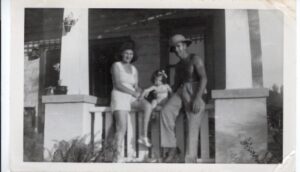
StoryWorth provided a database of hundreds of prompts and my children chose one each week to send to me, or made up their own. Some of the questions seemed simple, like “What was your first pet?” or “How did you acquire your first car?” but the pet prompt had me crying into my laptop as I remembered that my parents had given Rusty, a pomeranian/spaniel cross who slept with me every night, to the people who bought our house when we moved to Australia, and didn’t feel they could ask for him back when we returned three months later.
The prompt about my first car led me to think about my first job and the boyfriend who drove my lovely new car into a tree. Some prompts made me laugh; others haunted me for days and took me to places and events I had stored away and didn’t really want to remember.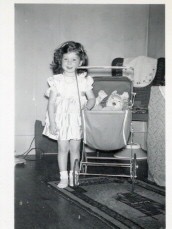
Memories, Memories, Memories
Some weeks it was easy; the words flowed, and I enjoyed the process. Other weeks the prompt didn’t resonate with me, or it elicited difficult feelings, and I postponed writing until later. Eventually we reached the end of the year and I had written 52 personal essays, ranging from 300 to 1200 words each. I had inserted a few photos into the stories, but my children wanted more, so I spent most of November and December pouring over family albums, scanning and editing photos, and finding just the right place to put them.
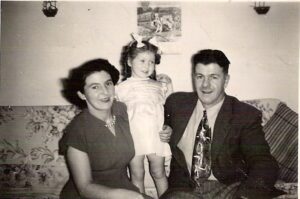 Finally, I arranged the stories in approximate chronological order, so they would make sense to the readers, my children and grandchildren.
Finally, I arranged the stories in approximate chronological order, so they would make sense to the readers, my children and grandchildren.
As you might imagine, this process evoked many forgotten memories, and I spent days and weeks thinking about times past, wondering what they all meant and whether I had made the right decisions, said the right things.
What Does It All Mean?
Erik Erikson
Using StoryWorth to Write a Memoir
Writing memoir is a powerful experience. If you have been thinking about collecting memories for your own family, I highly recommend this process to get started. You can ask your children to select the prompt questions, or you can select them yourself. You will end up with pieces of the puzzle still missing, but with many of them in place, which is a great start.
However, be forewarned; you will end up re-living parts of your life that you had completely forgotten, and that may be painful. However, I will vouch for the process. As I discovered when writing my memoir of the years my family spent off the grid, Back to the Land in Silicon Valley, writing through the memories is a powerful tool for understanding what they mean and coming to terms with your decisions and actions.
“The more you know yourself, the more patience you have for what you see in others.”
Erik Erikson
Marlene Anne Bumgarner writes primarily about food, family, and traditions. Her 2020 memoir, Back to the Land in Silicon Valley, is about raising children, animals, and vegetables on a rural plot of land in the 1970s. Organic Cooking for (not-so-organic) Families will be out soon, and she’s now working on an update to The Book of Whole Grains while also crafting a cozy mystery, Death on a Sunny Afternoon – a Harriet Palmer Mystery.
Share this post
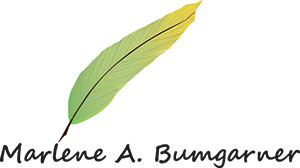
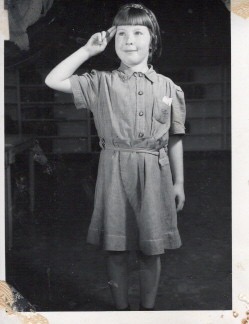
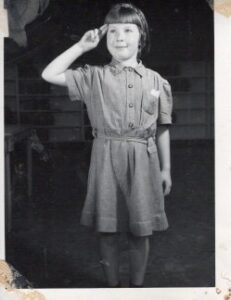

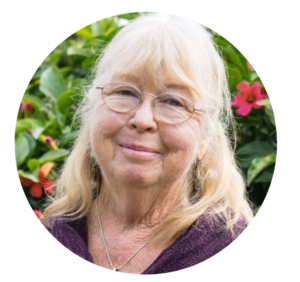


Thank you, Marlene, for sharing your intention to respond to your readers’ posts which brought me here to read this. I am debating about opening my Substack (soon to launch) to commenters. Clearly, these lovely readers’ appreciation for you and toward you is welcome and nourishment for your writer’s soul.
Thank you, too, for this irresistible impetus to buy StoryWorth for my brother.
Ever on-word in friendship, @L
What fun it is when my participation in our online writing community results in a new reader over here. You are correct – I love it when readers comment on my ideas or experiences. It might be fun for you and your brother to respond to the same prompts and then compare your results. I’ve always thought my own brother and I must have lived in different houses.
Hi Marlene,
Another friend was also given StoryWorth. I considered gifting it to myself. Did you opt for the printed book at the end? Reading between the lines, it sounds like you devoted a lot of time to the work. I’m glad you ended up with something worthy.
-Lisette
Lisette, I did opt for the printed book, which should be ready when I return from Italy – Christmas in Sorrento with Road Scholar tours. Each of my children has ordered a book, also. I think gifting it to yourself is a great idea!
I like what you wrote a lot! What a wonderful project, a gift from your children to themselves, and, as you wrote, it turned out to be a gift for you too.
Thanks for your response, Vivian. Yes, I think this project was a gift to our whole family. I am so grateful that my children wanted to read my stories.
Marlene – this is such an interesting and powerful post.
“The unexamined life is not worth living” supposedly said by Socrates at his trial where he chose death rather than exile, a version is also recorded in Plato’s ‘Apology’.
Erik Erikson’s theory resonates with me as well!
I’m so pleased, Susan! Thanks for writing.